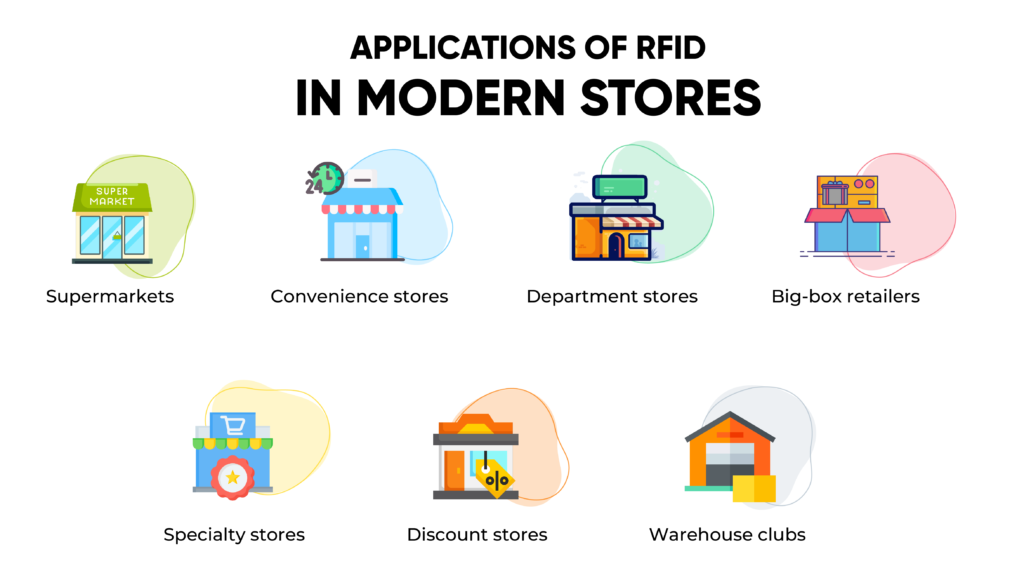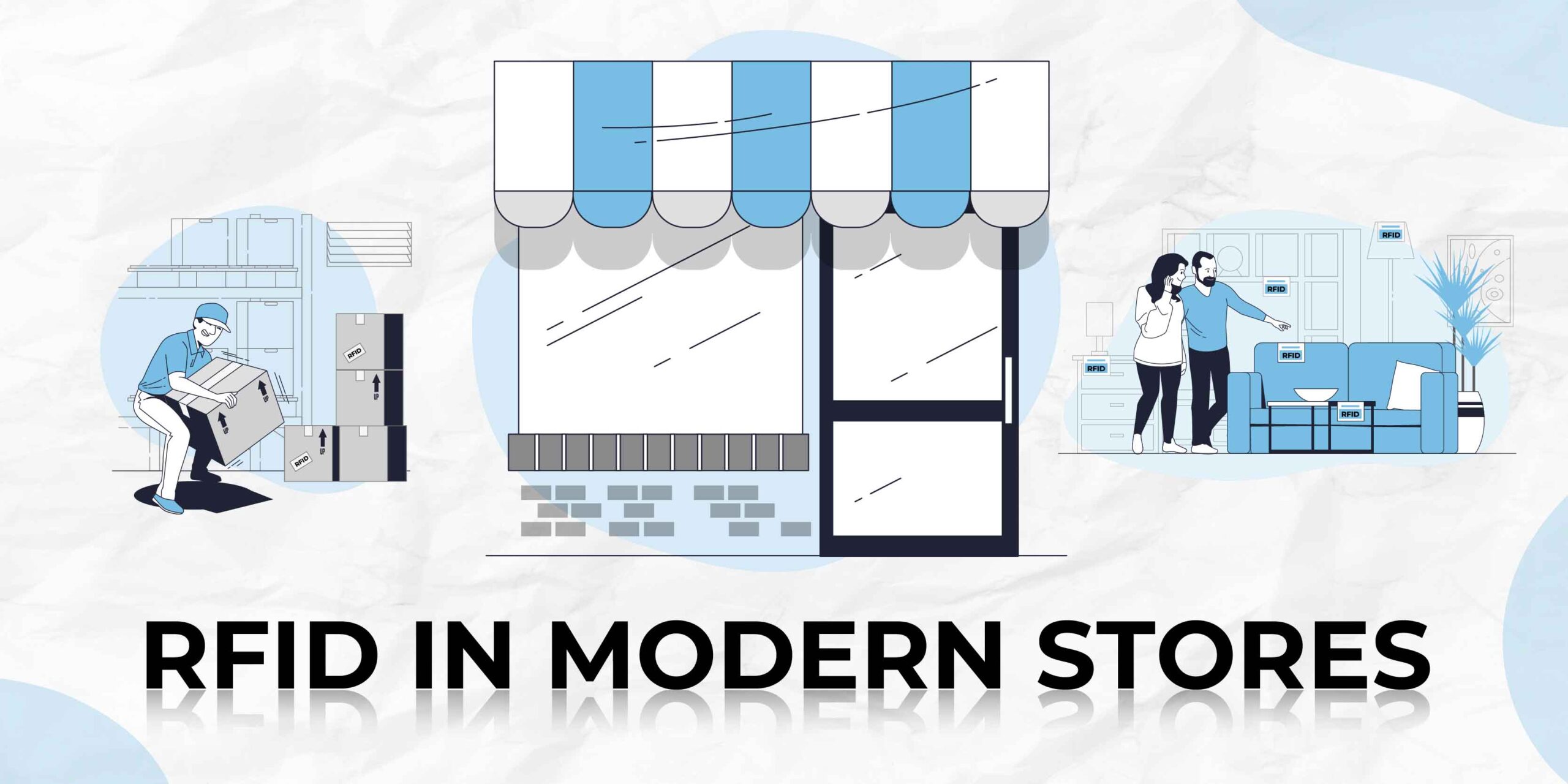Radio Frequency Identification (RFID) technology has emerged as a game-changer in the retail industry. It has transformed how modern stores operate, manage inventory, and enhance customer experiences. This article delves into the applications, benefits, and prospects of RFID in the retail sector.
What is RFID?
RFID is a wireless technology that uses radio waves to identify and track objects. An RFID system consists of three main components:
RFID tags: Small electronic devices containing a chip and an antenna.
RFID readers: Devices that emit radio waves and receive signals from RFID tags.
RFID software: Programs that process and manage the data collected by RFID readers.
Why RFID in Modern Stores? What problem will this solve?
1. Inventory Management in Modern Stores through RFID. RFID has revolutionized inventory management in retail stores.
Real-time tracking: Retailers can monitor stock levels in real time, reducing the need for manual inventory counts.
Improved accuracy: RFID reduces human error in inventory tracking, providing more accuracy in modern retail stores.
Faster stocktaking: What once took days can now be accomplished in hours, saving time and labor costs.
2. Improve Supply Chain Visibility in Modern Stores
RFID enhances visibility throughout the supply chain.
Item-level tracking: Retailers can track individual items from manufacture to sale.
Authenticity verification: RFID helps combat counterfeiting by verifying product authenticity.
Efficient receiving: Stores can quickly process incoming shipments, reducing bottlenecks.
3. Loss Prevention in Modern Stores
RFID technology aids in preventing theft and reducing shrinkage:
Smart shelves: RFID-enabled shelves can detect when items are removed and alert staff to potential theft.
Exit monitoring: RFID readers at store exits can detect unpaid items leaving the premises.
Return fraud prevention: RFID tags help verify the authenticity of returned items.
4. Enhanced Customer Experience in modern stores
RFID contributes to improved shopping experiences:
Smart fitting rooms: RFID-enabled fitting rooms can suggest complementary items based on what customers try on.
Self-checkout: RFID allows for faster and more accurate self-checkout processes.
Personalized recommendations: By tracking customer preferences through purchased items, stores can offer tailored suggestions.
Benefits of RFID in Retail Modern Stores

- Increased sales: Better inventory management leads to fewer stockouts and increased sales opportunities.
- Reduced costs: Improved efficiency in inventory management and reduced shrinkage lower operational costs.
- Enhanced customer satisfaction: Faster checkouts and better product availability improve the shopping experience.
- Data-driven decision-making: RFID provides valuable data for making informed business decisions.
Applications of RFID in Modern Stores
- Supermarkets
- Convenience stores
- Department stores
- Big-box retailers
- Specialty stores
- Discount stores
- Warehouse clubs

Challenges and Considerations in RFID for Modern Stores
While RFID offers numerous benefits, retailers must consider:
Implementation costs: Initial investment in RFID infrastructure can be significant.
Privacy concerns: Proper data protection measures must be in place to address customer privacy issues.
Integration with existing systems: RFID must be seamlessly integrated with current inventory and POS systems.
The Future of RFID in Modern Stores
As RFID technology continues to evolve, we can expect:
- Integration with IoT: RFID will play a crucial role in the Internet of Things ecosystem within retail environments.
- Advanced analytics: AI and machine learning will enhance the insights gained from RFID data.
- Sustainability initiatives: RFID will aid in tracking product lifecycles and supporting circular economy efforts.
Conclusion
RFID technology has become an indispensable tool for modern retailers, offering unprecedented levels of efficiency, accuracy, and customer service. As the technology continues to advance and become more cost-effective, its adoption is likely to accelerate, further transforming the retail landscape. Stores that embrace RFID will be well-positioned to thrive in an increasingly competitive and digitally-driven retail environment.
